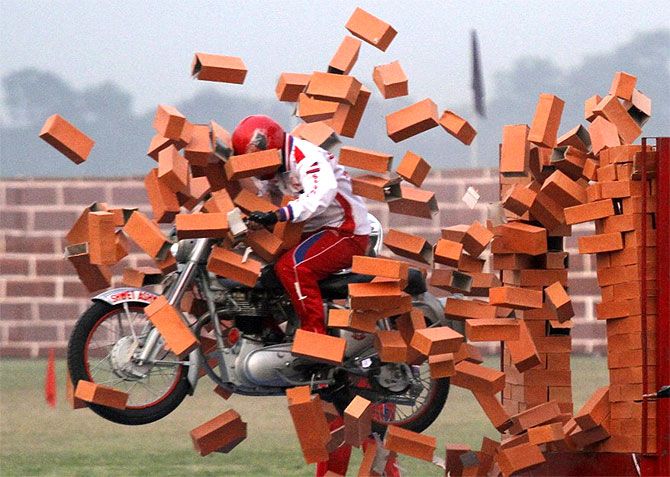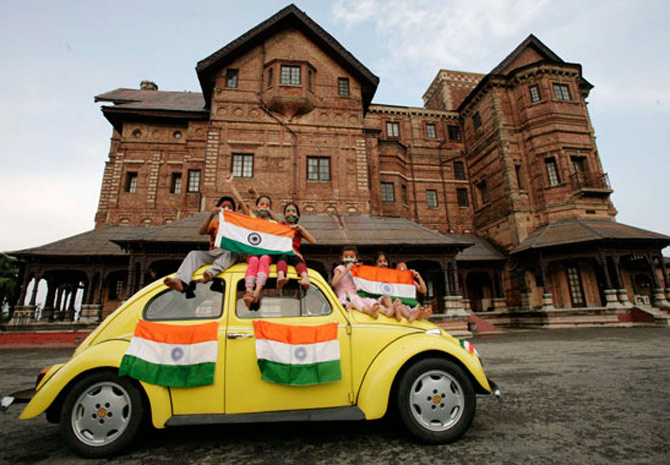 It is not impossible for India to be among the top 100 countries in ease of doing business next year if it continues with its set of planned economic reforms, including the crucial Goods and Services Tax and cut down on the bureaucratic cost, a top World Bank economist has said.
It is not impossible for India to be among the top 100 countries in ease of doing business next year if it continues with its set of planned economic reforms, including the crucial Goods and Services Tax and cut down on the bureaucratic cost, a top World Bank economist has said.
"If the changes that we saw thus far can be kept up and strengthened a little, it is not impossible for India to be in top 100 (ranking of the ease of doing business report) by next year," the World Bank Chief Economist and Senior Vice President, Kaushik Basu told PTI.
"There are countries which have moved 30-40 places at one go, but usually these are small countries.
“For a big economy like India, it is difficult, but from what we have seen thus far, it is not impossible," Basu said after the World Bank in its report released yesterday said that India jumped 12 places in the ease of doing business from 142 last year to 130 this year.
Basu, who served as the top economic advisor during the previous Manmohan Singh government, described this as a ‘remarkable achievement’ for a country of the size of Indian economy and that too in the first year of the reform.
“We have usually seen in other countries when the reforms start, in the first year, you get a small movement then in the second and third year, you get a big movement.
“And India had a reasonably substantial movement in the first year itself.
“So one is very hopeful," he said.
However, he felt there is still a long way to go.
"There is a lot of serious interest in India to cut down bureaucratic costs of doing business for small and medium-sized firms.
"It is important, however, to recognise that this is just a start.
“There is still a long way to go," he said.
Responding to a question, Basu said there are three areas where India needs reforms and initiatives.
"First, India needs to cut down transactions costs and the bureaucratic hurdles it places on individuals and small enterprises. As I just said, there is reason for optimism on this," he said.
"Second, India needs better infrastructure -- roads, railways, ports.
“There has already been improvement in infrastructural investment. But the momentum needs to be kept up," he added.
"And, third, is inclusiveness. India is a diverse society and you have to have policies so that all groups feel included, and part of society.
“This entails health and educational interventions for the disadvantaged," he said.
"Inclusiveness goes beyond economics, but, done well, it can yield rich dividends for the economy," he said.
On the economic reforms, Basu said there are a couple of big ticket items on the agenda.
He described the Goods and Services Tax as the biggest one.
"If, India can move so that by next year, after the budget, you have a GST in place, that can make a very big difference.
“It will not be a perfect GST to start with but it should be possible to make amendments and improve it over time," he said.
"Here is one very simple statistic. In India, a truck carrying freight goes from one city to another spends on average 60 per cent of the time stationary; and the bulk of that time is because of check posts, doing paper work, paying taxes and levie," Basu said.
"Once the GST is in place, India can very easily have a rule that there will be no check posts on the way.
“All charges will be paid at the source or at the destination," Basu said, indicating implementation of GST would help considerable improvement in ease of doing business ranking.
Observing that the design of economic policy requires a lot of skillful professional thought, Basu said luckily, there are very good professionals -- Raghuram Rajan, Arvind Subramanian, to name just two -- in the Indian government.
"They must be used to design policy better.
“And it should use people not just from those in government.
“There is excellent skill in India's universities, the Delhi School of Economics, Indian Statistical Institute, Indira Gandhi Institute. India needs to give voice to these professionals," he said.
Considered as the top world economist, Basu said India's economy is looking very good.
"In the World Bank's table of growth projections for major economies in the world, India is topping the list for the next year.
“Something similar is true of IMF projections.
“I do not think this has happened before. The Indian economy has some deep strengths and must continue to build on them," he said.
"But as I said before, we do not live by the economy alone. We have to attend to several diverse reforms and an active policy of inclusiveness and the promotion of shared prosperity," Basu said.









 © 2025
© 2025